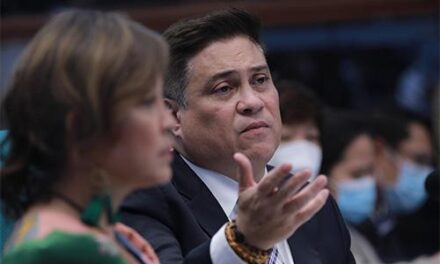Thiruvanathapuram, Kerala, India, 20
December 2007
A consultation on ‘India's FTA
negotiations and implications for Kerala' organised in the city
yesterday called for caution from New Delhi in the current rush to
sign Free Trade Agreements (FTAs).
Fishworkers Unions, farmers groups,
researchers and civil society organisations participated in the
meeting, organised by the Thiruvanathapuram based Kerala Swatantra
Matsya Thozhilala Federation
(KSMTF) in collaboration with the
Mumbai based research group Focus on the Global South. Speakers at
the meeting included Farmers Relief Forum leader AC Varkey and KSMTF
President T Peter.
Background to the meeting:
The ongoing crisis in the World Trade
Organisations (WTO) Doha round of trade talks and the market access
ambitions of big business has necessitated a shift to bilateral and
regional FTAs. Whereas in 2000 there were only 130 FTAs scattered
across the world, by October 2007 their number had mushroomed to 430.
India is the process of negotiating and implementing some 27 FTAs.
India's first FTA was the India-Sri
Lanka Free Trade Agreement (ISFTA) signed in 2000. While the FTA did
result in increased bilateral trade, farmers in Kerala were at the
receiving end. Imports of duty free black pepper from Sri Lanka
increased from 1385.3 tonnes in 1999-2000 to 4865 tonnes in 2004-05.
This resulted in a free fall in local prices from 21,502 rupees per
quintal to 6644 rupees in the corresponding period. Suicides among
pepper farmers in the Wayanad region also saw a sharp rise during
this period. Many farmers are still reeling from the ISFTA and
continue to be in a debt trap despite some attempts by the Kerala
Government to address the agrarian crisis.
Much of the political campaign of
groups such as Farmers Relief Forum in Wayanad is to stop the
confiscation of farms and houses of farmers by banks, said AC
Varkey.
Since India slashed tariffs in 1996-7,
agricultural imports across the country have spiraled; 270% increase
in volume and 300% in value terms.
Participants at the meeting noted that
while middle class consumers have benefited through cheaper prices of
imported commodities, a huge section of consumers who are also
producers (India has some 300 million small farmers with less than 2
acres of land) have been given short shrift.
Threat to fishing community:
New FTAs such as the European Union
(EU) – India Trade and Investment Agreement, India Thailand FTA and
the ASEAN-India Regional Trade and Investment Area were identified as
posing threats to the fishing community in Kerala.
The EU-India FTA is in the third round
of negotiations and covers areas such as agriculture, fisheries,
goods, investment and services and is India's most ambitious and
challenging FTA till date. With 27 countries, the EU is one of the
largest trading blocks and controls 1/3rd of global trade. Both negotiating teams have agreed that the
minimum coverage of the FTA will be 90% of all trade.
‘We have heard from sources in the
Commerce Ministry that fish species such as mackerels, sardines,
mullets, anchovies and flounders, the means of livelihood for the
traditional fishworkers will be imported under minimum tariffs. We
will be denied a just price for our catch as import of subsidised
fish would cause local prices to plummet', said T Peter.
Indian negotiators expect that these
FTAs will provide Indian exporters access to foreign markets. While
tariffs are low in the EU, they are several other import restrictions
such as domestic subsidies, non-tariff barriers (NTBs), trade rate
quotas (TRQs), Sanitary and Phytosanitary (SPS) measures and tariff peaks to protect their
markets.
Peter suggested that ‘We should
spread awareness across the country on the disastrous effects of the
ISFTA. The ASEAN -India regional FTA which involves the 10 South
East Asian countries will have a bigger adverse impact on us. Many of
ASEAN exports such as fish, copra, coconut oil, desiccated coconut, natural rubber and pepper are
also produced in India'.
KSMTF plans to contact other unions and
various social movements in the state and across the country to
question the FTA policy of the Commerce Ministry. Follow-up
activities planned by the group include producing pamphlets, raising
the issue in the next session of the Kerala Assembly (inFebruary 2008) and working in
solidarity with fishworkers and farmers groups in the ASEAN and EU.
(Ends)
For more information contact T Peter: +
91-9447429243.
[email protected] and
Benny
Kuruvilla + 91-9873921191.
[email protected]








